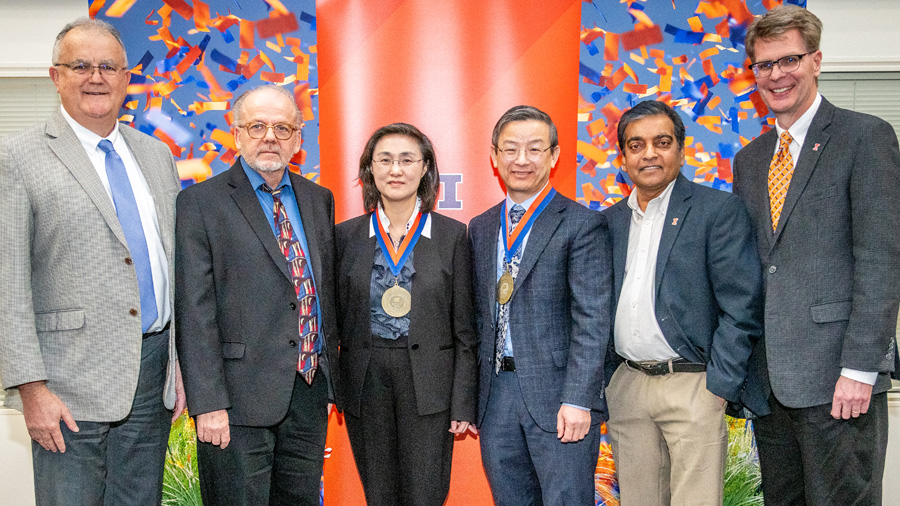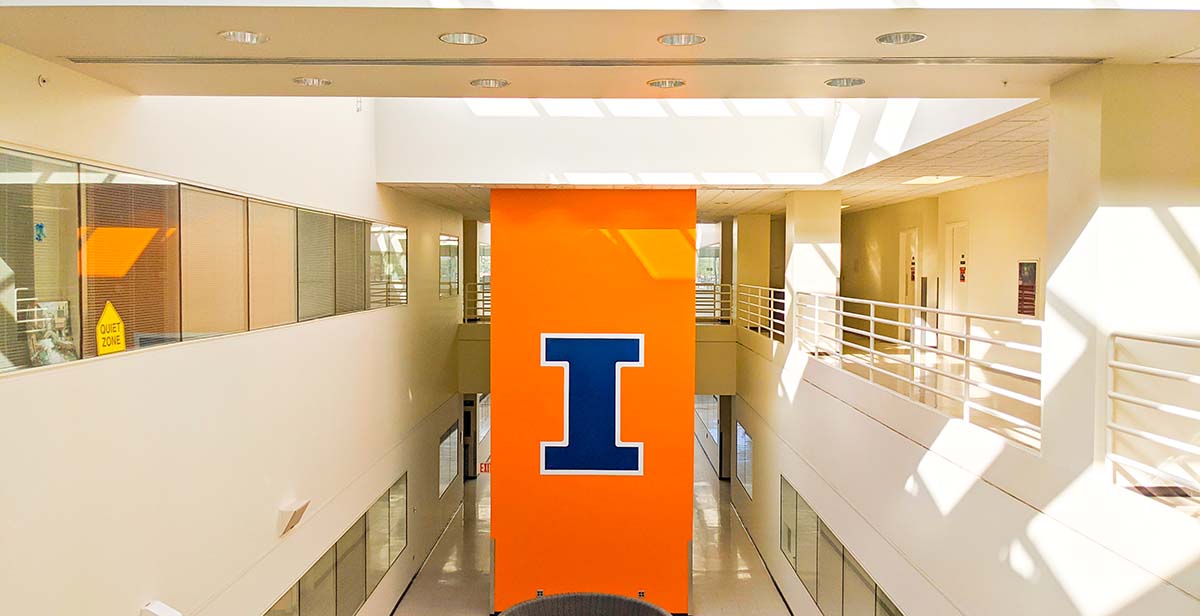The College of Veterinary Medicine was among 11 campus units selected to receive funding through the University of Illinois Urbana-Champaign’s Investment for Growth (IFG) program for FY24.
The college’s proposal, entitled Virtual Care Hub in the College of Veterinary Medicine, will return one of the historic round barns to its original dual purpose of innovation and education as the headquarters for a new program to lead the application of digital technologies in the delivery of veterinary care.
The hub is designed to be the embodiment of a Land Grant university for the 21st century. It will both develop new ways to use technology in the delivery of veterinary care and at the same time build on the college’s world-class educational programs for veterinarians, allied industry, and animal owners.
According to Dr. Jim Lowe, director of the i-Learning Center and one of the proposal’s authors, “By developing a vibrant community of clinicians, technologists, and educators, we aim to develop technology-based care delivery systems that improve the consistency and quality of care across providers, which, over the long term, can help address the global problem of inadequate access to quality medical care for animals and people.”
The Investment for Growth Program, managed by the Office of the Provost, provides support for new initiatives that meet an emerging societal demand aligned with the scholarly mission of the unit and that have the potential to enhance financial sustainability.
Campus units, including college, schools, and research institutes, contribute resources to an investment pool to fund the IFG program. These units are then eligible to submit proposals for consideration. Submitted proposals are reviewed by members of the Council of Deans and Campus Budget Oversight Committee as well as the Chancellor and Provost and their leadership teams.
This is the fourth IFG proposal from the College of Veterinary Medicine that has been funded in the five rounds of proposals. The first round of funding, for FY2018, led to the development of the college’s first online master’s degree, the Master’s in Veterinary Science.
Funding was also received for “Translational Research and Collaboration through Surgical Training and Innovation” and “Promoting Ecosystem and Wildlife Health Literacy.”




